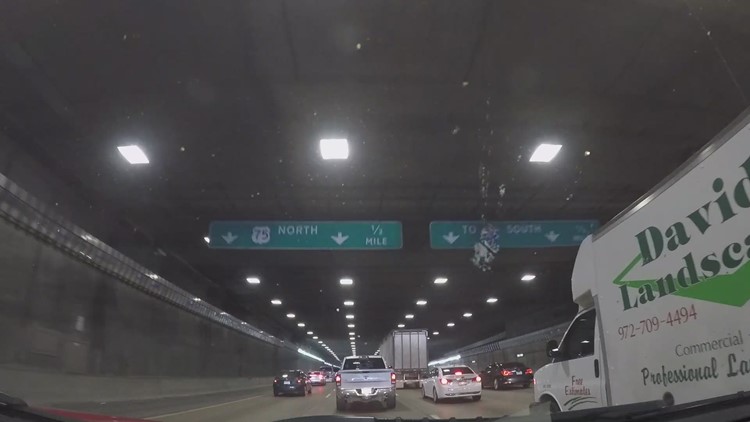DALLAS — If you've been stuck in traffic anywhere in the Metroplex, you won't be shocked to learn that several roadways in North Texas are considered the most congested in the state.
According to a new study from the Texas A&M Transportation Institute Mobility Division, four road sections in DFW made its list of the top 10 most congested in Texas for 2022.
In all, North Texas accounted for 37 of the most congested roadways out of the 100 listed across the state.
The study analyzed over 1,800 segments, covering more than 9,900 miles in Texas. The congestion on all of the road sections analyzed combines for more than 380,000,000 hours of traffic delays, more than 138,000,000 gallons of fuel waste and more than $9.5 billion in congestion costs, the study says.
The worst roadway in North Texas -- ranked second in the state behind a stretch in Houston -- is a section of Woodall Rodgers Freeway/SS 366 that runs from US 75 to N. Beckley Avenue. According to the Mobility Division, this stretch causes more than a million annual hours of delays per mile and an annual congestion cost of $34 million.
Coming in at No. 6 in the list of the state's most congested roadways is Tarrant County's North Freeway/Interstate Highway 35W/US 287 stretch from State Highway 183 to Interstate Highway 30. The Mobility Division said this roadway causes more than 800,000 annual hours of delay per mile and an annual congestion cost of $70,960,548.
Ranked at No. 7 is Interstate Highway 345/US 75/Interstate Highway 45 from US 75 to SM Wright Freeway/US 175 in Dallas County. The roadway causes more than 700,000 annual hours of delay per mile and more than $43 million in congestion costs.
And then there's the ninth-ranked strip of US 75 between Lyndon B. Johnson Freeway/IH 635 and Woodall Rodgers Freeway/SS 366 in Dallas County that causes more than 600,000 annual hours of delay per mile and $137 million in annual congestion costs.
“Traffic congestion isn’t just a big-city problem, and that problem is almost sure to get worse as our population surges by almost 20 million in the next 25 years,” says David Schrank, TTI’s lead researcher on the annual study, in a press release. “With that kind of growth, Texas needs to use every possible means to keep people and goods moving. We need to add capacity, operate the system efficiently, and give people options for how to travel."
According to the mobility division, traffic delays "impose an immense financial burden."
To view the entire list of the 100 most congested roadways in Texas, click here.



